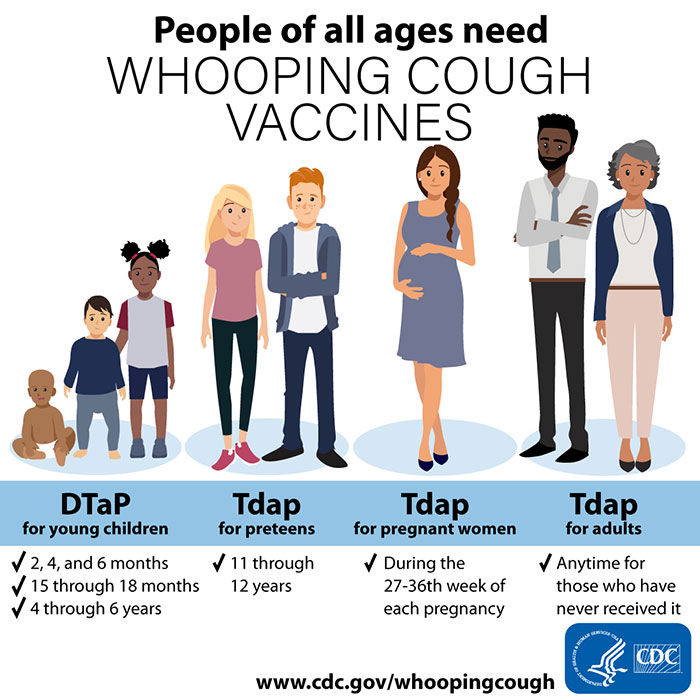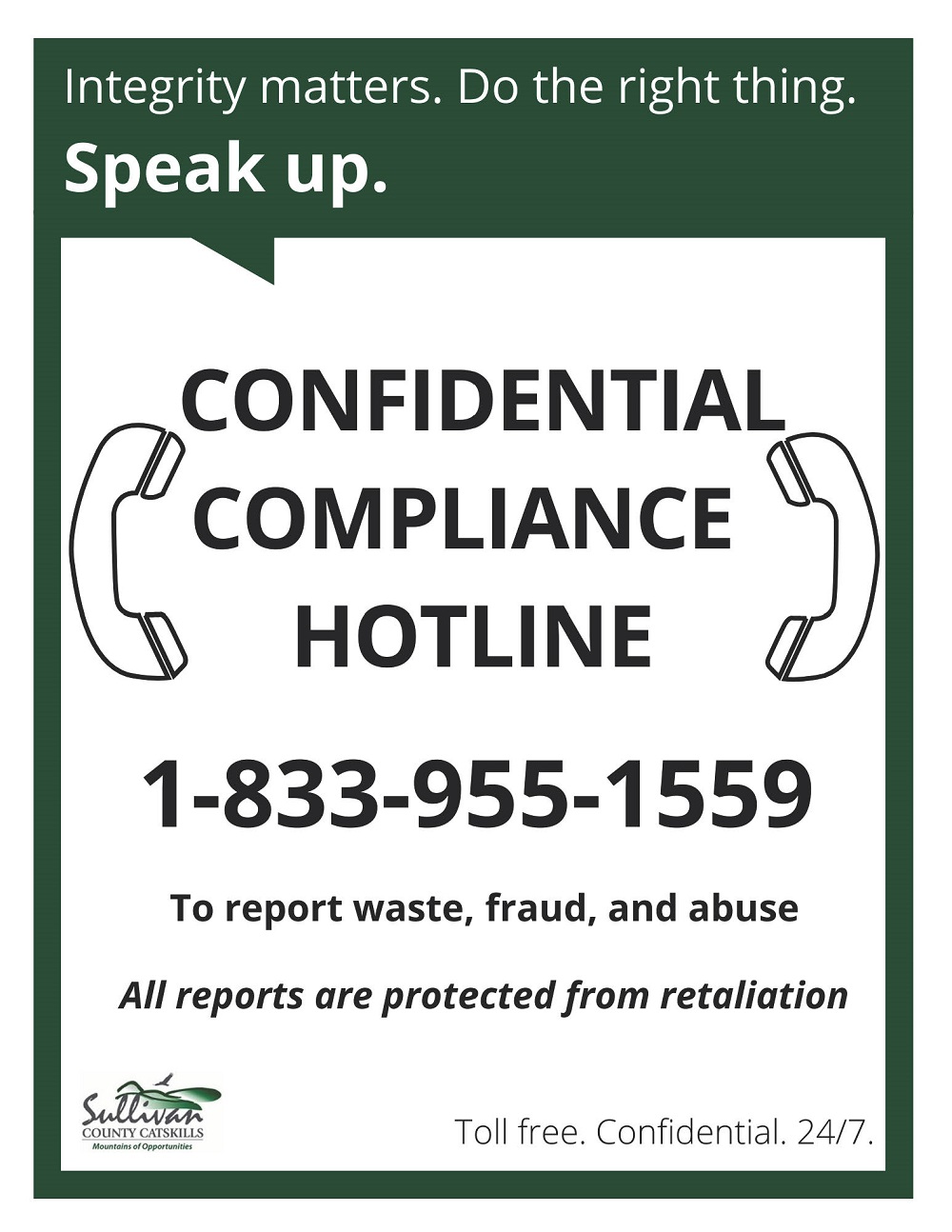
Liberty, NY – Sullivan County Department of Public Health would like to notify the public of an increase in cases of pertussis (whooping cough) identified in children of varying ages, with five (5) confirmed just this week.
“This is an important advisory, and comes during National Immunization Awareness Month,” said Director of Public Health Karen Holden. “This month reinforces why vaccines are important for people of all ages and how they can help prevent serious, sometimes deadly, diseases and illnesses.”
What Is Pertussis?
Pertussis is known as whooping cough because of the “whooping” sound that is made when gasping for air after a fit of coughing makes it hard to breathe. These coughing fits can last up to 10 weeks or longer.
Pertussis is a highly contagious disease that is spread through the air. Pertussis begins with cold symptoms and cough, which worsen over 1-2 weeks. Symptoms usually include a long series of coughs (“coughing fits”) followed by a “whooping” noise. However, older children, adults and very young infants may not develop the “whoop.” There is generally only a slight fever.
People with pertussis may experience coughing followed by vomiting, turning blue, or difficulty catching breath. The cough is often worse at night, and cough medicines usually do not help alleviate the cough.
What Should I Do?
If you or a loved one was exposed to pertussis, you should reach out to your healthcare provider for post-exposure treatment. This is especially true when you or your loved one are not up to date with all vaccinations, or if you are uncertain of your vaccination status.
After diagnosis, it is very important to complete all prescribed antibiotics before returning to work, school, or community functions, to reduce the spread of the disease to others. People who have or may have pertussis should stay away from young children, infants and all people with pre-existing health conditions that may be exacerbated by a pertussis infection (for example, immune-compromised persons and patients with moderate to severe medically treated asthma).
Pertussis can cause serious illness in babies, children, teens, and adults and can even be life-threatening, especially in babies. Approximately half of babies less than 1 year old who get pertussis need treatment in the hospital.
The most effective way to prevent pertussis is through vaccination with DTaP for babies and children and with Tdap for preteens, teens, and adults. Vaccination of pregnant women with Tdap is especially important to help protect their newborn. Vaccinated children and adults can become infected with and spread pertussis; however, the disease is typically much less serious in vaccinated people.
Worldwide, there are an estimated 24.1 million cases of pertussis and about 160,700 deaths per year, according to the most recent data. Data used in pertussis surveillance comes largely from reported cases from health care providers. Many cases of pertussis go unreported; therefore, our case count can be far smaller than the actual number of active cases within the community.
Since the 1980s, there has been an increase in the number of reported cases of pertussis in the United States. The number of cases of pertussis in New York more than doubled in 2022 when compared to 2021. This trend of increasing cases in New York has continued into 2023. During the COVID-19 pandemic, there was a sharp decline in reported cases, largely due to airborne disease precautions taken. In order to mitigate the current increased trend, taking measures to prevent person to person spread and staying current on vaccinations is vital to the health and well-being of the community. (Source: www.cdc.gov/pertussis/fast-facts.html)
Here are some tips to keep pertussis from spreading:
• Get up to date on vaccinations!
• Cover your coughs and sneezes;
• Cough or sneeze into your elbow or a tissue
• Discard tissues when used
• Wash hands with soap and water frequently
• Do not share cups or silverware
• Stay away from others until evaluated by a healthcare provider.
If your provider needs more information, a Registered Nurse or Epidemiologist is on call and available 24/7 at Sullivan County Public Health: 845-292-5910.
More Resources
Diphtheria, Tetanus, and Whooping Cough Vaccination: What Everyone Should Know
• https://www.cdc.gov/vaccines/vpd/dtap-tdap-td/public/index.html
Diphtheria, Tetanus, and Pertussis Vaccination: Information for Healthcare Professionals
• https://www.cdc.gov/vaccines/vpd/dtap-tdap-td/hcp/index.html
CDC Whooping Cough Website
• https://www.cdc.gov/pertussis/index.html
Immunize.org’s Pertussis Website

